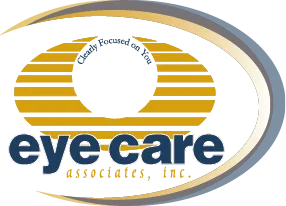Everyone is talking about LASIK surgery. LASIK is short for Laser Assisted In Situ Keratomileusis – a refractive procedure that uses an excimer laser to permanently change the shape of the cornea to correct a variety of vision problems.
Who Can Benefit from Lasik or any Refractive Procedure?
Refractive procedures can effectively correct a variety of vision problems, including nearsightedness, farsightedness and astigmatism. You need to meet a certain qualifying criteria to be eligible for a refractive procedure. Your eye must be healthy, your current prescription must be stable for at least one year, and you should be in good general health.
How Do I Know if I Am a Good Candidate?
When you schedule a pre-operative examination, you will receive a thorough evaluation. It will be necessary to do a number of different tests to measure the curve, shape and thickness of the cornea. Your eyes will be dilated so we can evaluate the health of the complete eye. When all the tests have been completed, the doctor will sit and discuss which refractive options are available for your consideration. This examination usually takes about two hours to complete.
If I Wear Contact Lenses, Do I Need to Take Them Out for the Exam?
Contact lenses, whether they are soft or gas permeable, change the shape of your natural cornea. When considering a refractive procedure, it is of the utmost importance that the surgical measurements we gather reflect your true cornea and not the cornea that has been modified by the contact lens. Therefore, we have a set of guidelines that we follow. Soft contact lenses need to be out of the eye for at least three days prior to the examination. If the exam tells us that you are a good candidate and you want to move forward to plan the procedure, we will ask that the lenses stay out for seven days prior to the surgery date.
Gas permeable lenses present a different scenario because the cornea takes much longer to return to its natural state. We like to be able to start from the beginning and monitor the corneal shift. In order to do this, we ask that you take out the lens the night before your preliminary exam. At this exam, you will be at the office for about 30 minutes. We will basically check your refraction and pachymetry (corneal thickness). With those two tests, we can determine if your corneal thickness will allow a refractive procedure. If it does, and you want to pursue the complete exam, we will then ask you to return to the office in two to three weeks. At that time, we will again check your refraction and verify how much change has taken place. We will ask you to return one last time in another two weeks at which time we will perform a dilated exam. When we know that the corneal shift is complete, we will allow the surgery to take place. It is a longer process, but it is the only way to be sure of providing you with your best personal vision. (Please note: when coming back at 2-week intervals, contact lenses have to stay out.)
Is the Procedure Done at a Hospital?
No. Our refractive procedures are performed at our free-standing outpatient surgery center – The Center for Advanced Eye Surgery on Western Reserve Road in Poland, Ohio. On the day of your procedure, you should plan to be with us for about one to two hours. The surgery requires only anesthetic eye drops and is done in your street clothes. Refractive patients are awake for their procedures that are completed in only a matter of minutes. You will need to arrange for someone to drive you home from your procedure.
Is There any Pain?
There is no pain during the procedure. If you are having LASIK procedure, you will feel a brief moment of pressure when the microkeratome is being used to create the flap. Other than that, patients report no discomfort during the procedure.
Once the procedure is completed, and the surgeon has released you, you will be asked to keep your eyes closed to allow the healing of the flap to begin. A sleeping pill is prescribed to allow you to obtain about six to eight hours of immediate sleep. Once you have gotten past that time period, the flap has already started the healing process and patients note little discomfort.
For those that cannot sleep, mild discomfort may be experienced. It may feel as if there is an eyelash or a little piece of glass in the eye. This discomfort lasts for six to eight hours. If you sleep, by the time six to eight hours have passed, enough of the flap edge has begun to heal that you do not experience that sensation.
How often will I Plan to See the Doctor?
Your post-operative visits are vital to allowing us to monitor your healing process, and every effort must be made on your part to keep them as scheduled. You will see your surgeon on the morning after your LASIK procedure. On the fifth day, you will once again see the doctor who performed your pre-operative examination. You will need to see them again at the 1 and 3-month marks.
Are there Risks Associated with LASIK?
There are risks involved in every surgery. At your pre-operative examination, you will be asked to view a surgical consent video that is meant to help make you aware of such possibilities. These will also be discussed in more detail with your doctor during your examination, and they can include infection, undercorrection, overcorrection, irregular astigmatism and flap-related complications. We take every precaution to avoid as many risks as possible for our patients.
What if I Need a Retreatment?
Retreatments can be performed as long as there is enough remaining corneal tissue and the surgeon feels that you would obtain a visual benefit from the enhancement. Retreatments can only be planned when we know that the current refraction has remained stable for a period of time. It is not recommended to plan an enhancement until at least three to six months following the original procedure.
For more information, please contact the patient advisor by phone at 330-747-2733 or [email protected].

